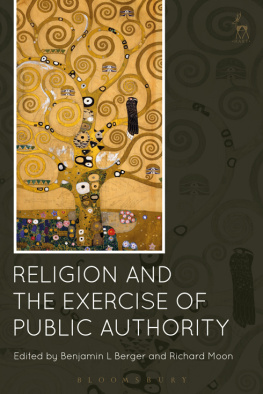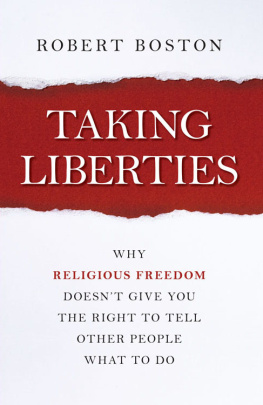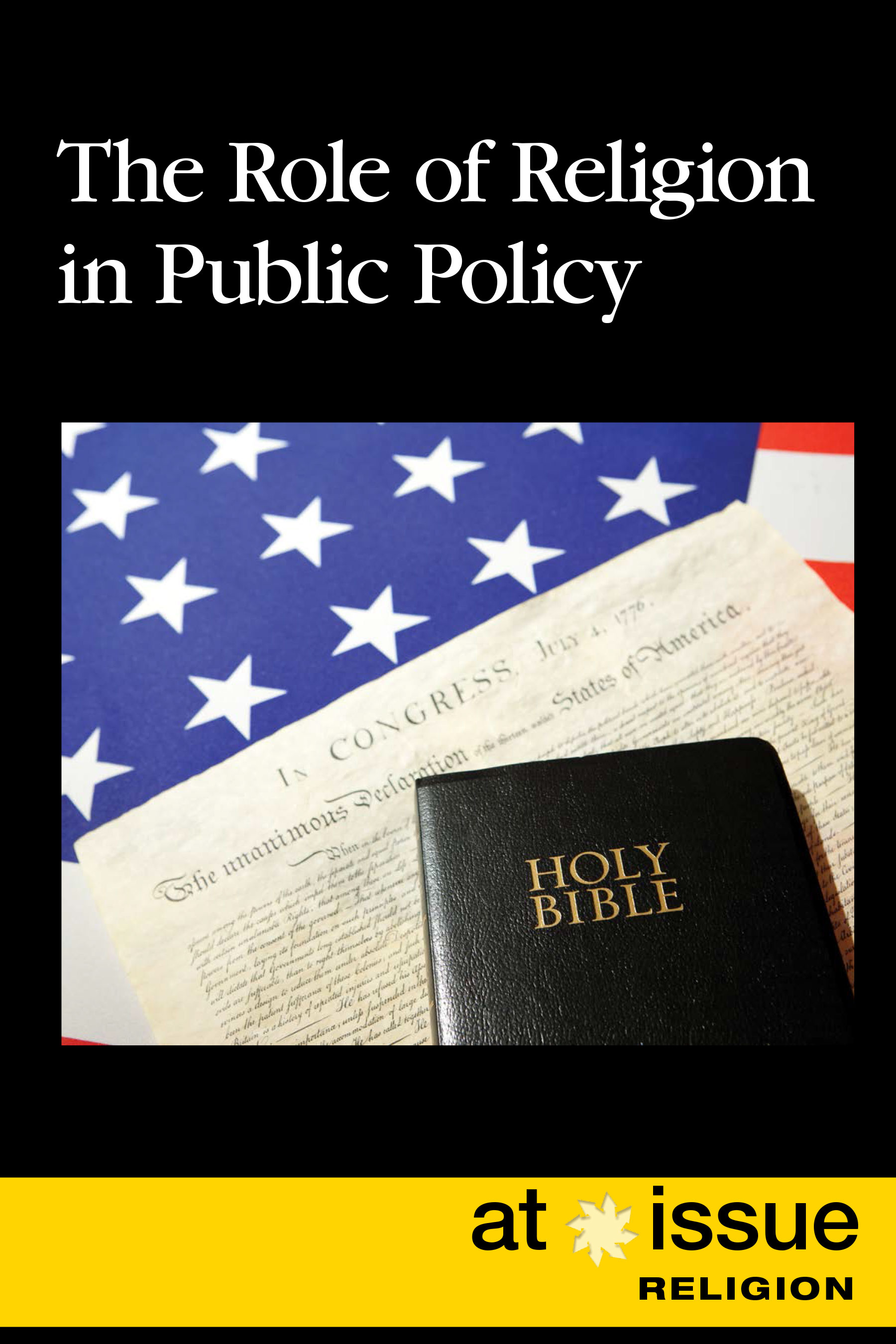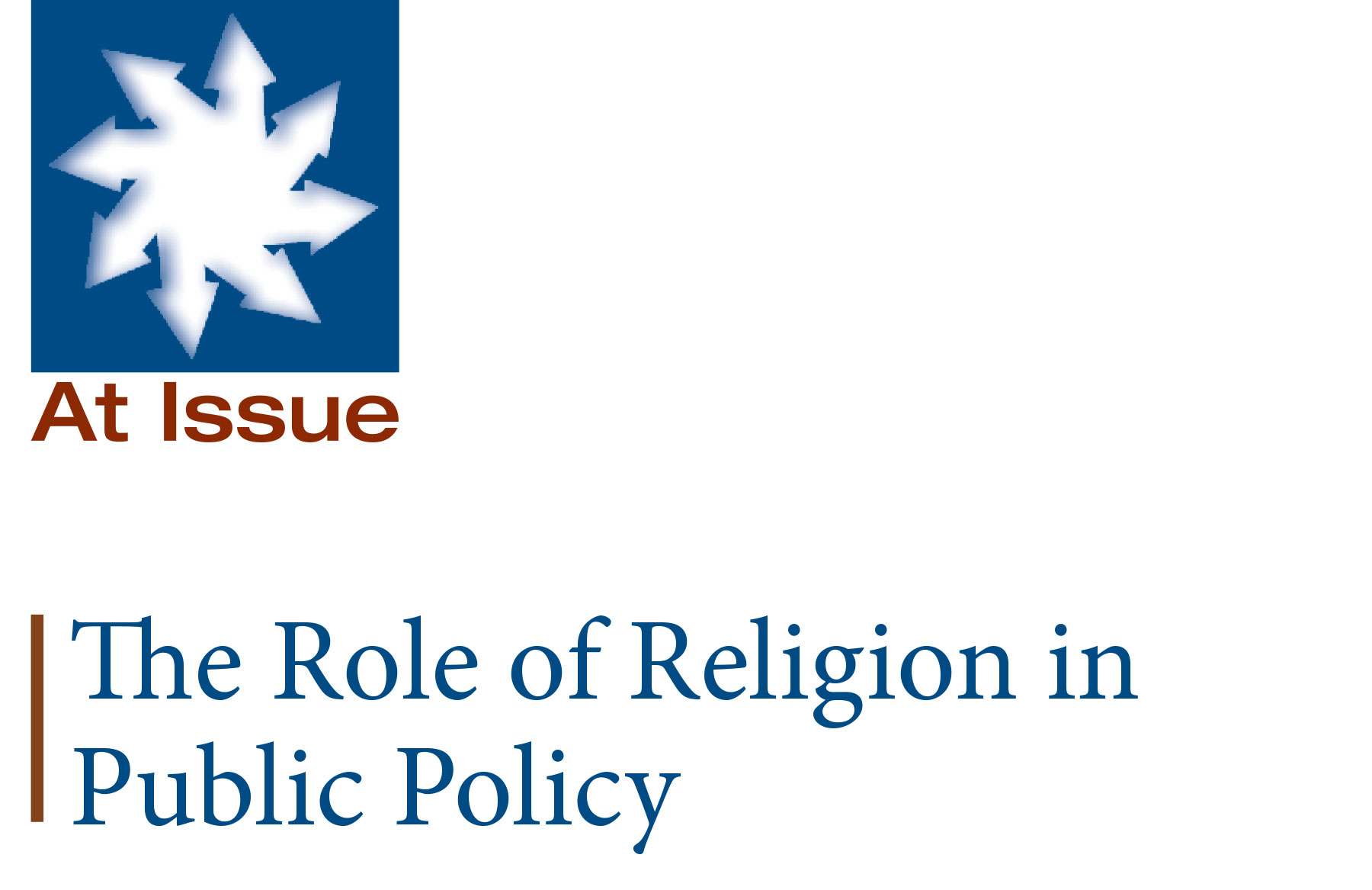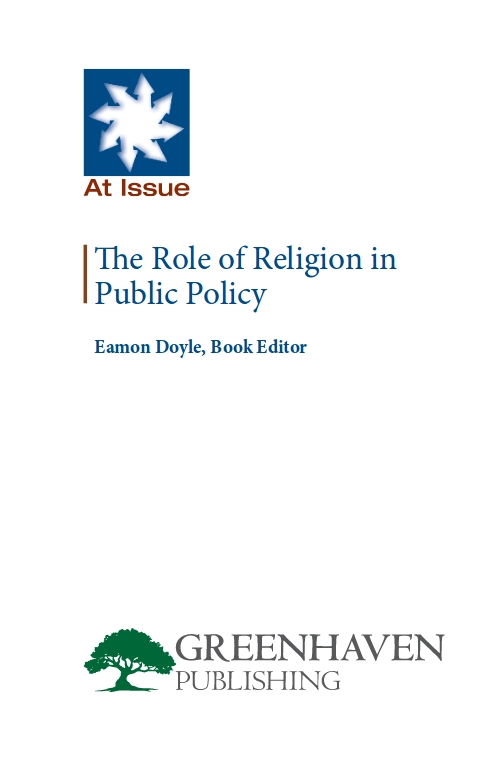Published in 2019 by Greenhaven Publishing, LLC
353 3rd Avenue, Suite 255, New York, NY 10010
Copyright 2019 by Greenhaven Publishing, LLC
First Edition
All rights reserved. No part of this book may be reproduced in any form without permission in writing from the publisher, except by a reviewer.
Articles in Greenhaven Publishing anthologies are often edited for length to meet page requirements. In addition, original titles of these works are changed to clearly present the main thesis and to explicitly indicate the authors opinion. Every effort is made to ensure that Greenhaven Publishing accurately reflects the original intent of the authors. Every effort has been made to trace the owners of the copyrighted material.
Cover image: DanielW/Shutterstock.com
Library of Congress Cataloging-in-Publication Data
Names: Doyle, Eamon, 1988- editor.
Title: The role of religion in public policy / Eamon Doyle, book editor.
Description: First Edition. | New York : Greenhaven Publishing, 2019. |
Series: At issue | Includes bibliographical references and index. | Audience: Grades 912.
Identifiers: LCCN 2018023307| ISBN 9781534503823 (library bound) | ISBN 9781534504516 (pbk.)
Subjects: LCSH: Church and stateUnited States. | Christianity and politicsUnited States. | United StatesPolitics and government. |
Religion and stateUnited States. | Religion and politicsUnited States. Classification: LCC BR516 .R65 2018 | DDC 322/.10973dc23 LC record available at https://lccn.loc.gov/2018023307
Manufactured in the United States of America
Website: http://greenhavenpublishing.com
Contents
1. Separation of Church and State
D. James Kennedy
2. Faith, Democratic Politics, and the Secular Age
Anthony Egan
4. The Social Gospel Movement and the Religious
Christopher H. Evans
5. Catholicism and the Tea Party
John Gehring
6. Not All Scientists Are Atheists
Amy McCaig
7. Topeka and the Westboro Baptist Church
Southern Poverty Law Center
8. Supreme Court Rules in Favor of Westboro BaptChurch
Nina Totenberg
9. The Social and Legal Dimensions of the USEvolution Debate
David Masci
10. Catholicism and Politics in the Modern Era
The Pontifical Academy of Social Sciences
11. American Attitudes on Religion in the PublicSchools
Pew Research Center
12. President Bushs Faith-Based Initiative
Joseph Loconte
13. Its Time to Separate Church and State Marriage
Bryan Cones
14. The Christian Right and the New Right
USHistory.org
Introduction
T he question of religions role in public life is among civilizations oldest and most enduring controversies. Its history stretches back to the ancient Greek writers and probably much further. Many modern democracies (particularly in the West) have adopted formal legal boundaries to distinguish between religious and political authority and to assign specific rights and limitations to each sphere. In the United States, the First Amendment of the Constitution states that Congress shall make no law respecting an establishment of religion, or prohibiting the free exercise thereof. This language, along with Thomas Jeffersons famous invocation of a wall of separation between church and state in an 1802 letter to the Danbury Baptist Association, has been at the center of Americas now centuries-long debate on the proper boundaries of religion in society.
The preponderance of such boundaries in societies across the world is a phenomenon specific to modern history. In much of the premodern world there was little distinction between political and religious authority. Science (in the modern sense of the word) had not yet emerged as a major source of human knowledge, and liberal values like individual rights would have been considered esoteric and heretical. In this context, theocratic monarchy and other forms of religious oligarchy were the norm across the most complex and technologically advanced societies of the era.
It was the advent of Enlightenment values and modern secularism in the sixteenth and seventeenth centuries that eventually paved the way for a more dynamic political climate, first in Europe and eventually across the globe. The religious scholar Barry Bussey writes:
The humanist strain of the Enlightenment stressed that reason provided the surest way for the affairs of man. Of greatest importance was that reason must triumph over religion and superstition. While religion was not disavowed entirely it was certainly put in a place where it could not control the power of the state to enforce its dogmas - its place was in the affairs of the individual, not of the state.1
Where political power had once been consolidated among a religious or political elite, it began to disperse into the commercial, military, religious, and technological spheres of society. The relative social equilibrium that emerged from competition between these spheres provided the basis for modern capitalism and democratic theory. New secular ideologies like Marxism, Liberalism, and Romantic Nationalism offered solidarity and a sense of purpose similar to what had only previously been available in a religious context, and politics across the West began to reorganize in terms of the right and the left. The writer Anthony Egan describes this process in the following passage:
Traditional religion was shaken at its foundations by the rise of nationalism, socialism and industrialisation. With the rise of communications to serve the latter in particular, small isolated communities that had been locked in a total system including folk religion were incorporated into larger economic and geographical units. They developed new identities outside the old system -whether as workers, Frenchmen, or through nationalist movements as Germans and Italians. These identities became, for most, primary. 2
Some of the eras political philosophers (including Marx, Mill, and Nietzsche) imagined that religion, supplanted by these new ideologies, would fade from public life as the modern era continued to develop and evolve. But history has shown this prediction to be largely false, especially in the United States.
In spite of Americas central role in the history of modern democracy and capitalism, the United States has a long tradition of religious revival and of religiously motivated political movements. The abolition movement, the temperance movement in the late nineteenth and early twentieth centuries, the civil rights movement in the sixties and seventies, the John Birch Society, and the modern Evangelical movement (Reagans Moral Majority) have all justified and explained some of their political commitments in explicitly theological terms. Religious leaders and congregations are involved in voter turnout efforts, and religious organizations are involved in a wide variety of social welfare and advocacy activities. Several specific issuesincluding abortion, prayer and the teaching of evolution in public schools, same-sex marriage, and the death penaltyhave emerged as flashpoints on the boundary between religion and politics in America. In some cases, such as the 2004 presidential election, electoral coalitions based around these issues have proven to be a decisive factor.3

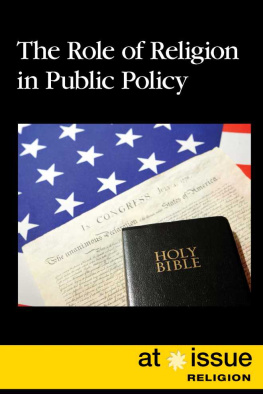
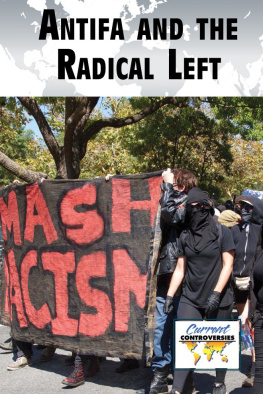
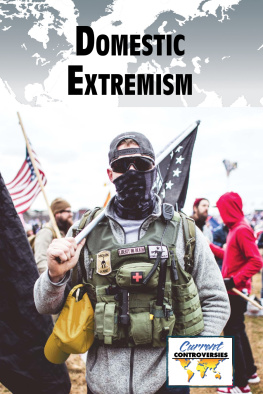
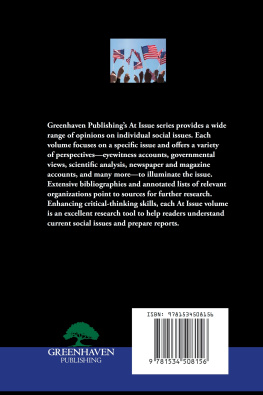
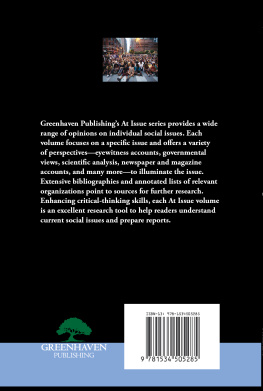
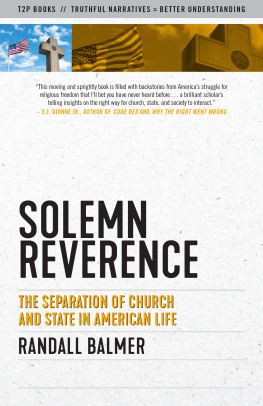

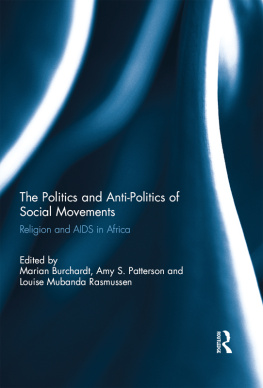
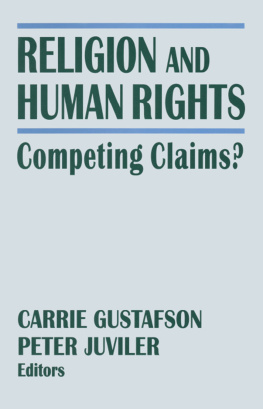
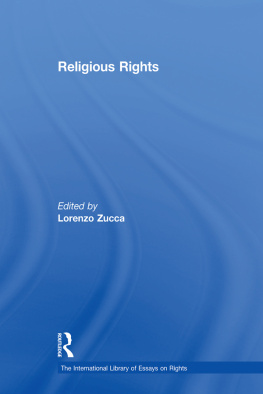
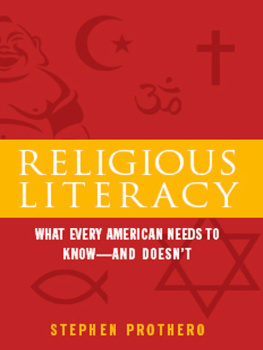
![Blackford - Freedom of religion [and] the secular state](/uploads/posts/book/167779/thumbs/blackford-freedom-of-religion-and-the-secular.jpg)
